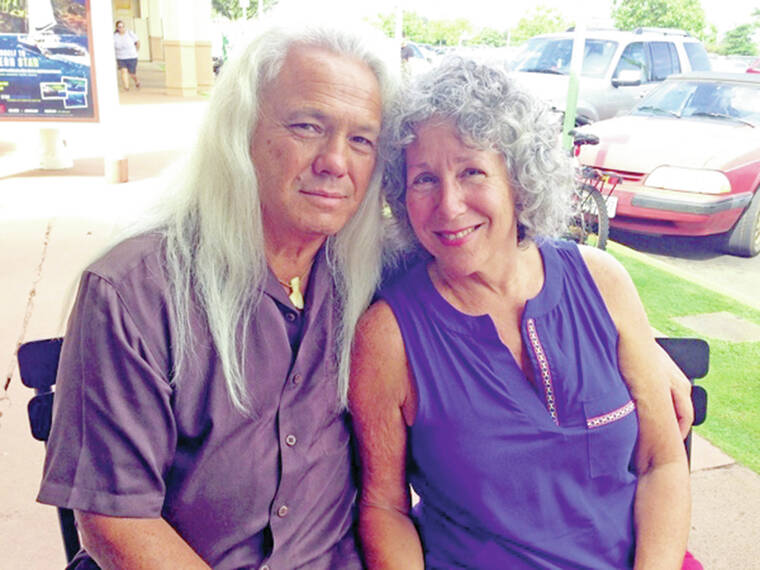LIHU‘E — It’s a season of remembrance for Kalaheo resident and writer Inette Miller: last December, she celebrated her 24th wedding anniversary to husband ‘Iokepa ‘Imaikalani, who began an austere spiritual journey dedicated to Indigenous Hawaiian culture 25 years ago this month.
But January also marks the one-year anniversary of Miller’s latest book, “Girls Don’t.” It’s a memoir of a time before she spent a decade homeless on Kaua‘i beaches with ‘Imaikalani — a period that began in February 1970 when she flew to war-torn Vietnam as a reporter and 21-day newlywed.
“As a reporter in the late ‘60s, early ‘70s, you could not find a more-prestigious place to be — meaning a more male place to be — than the war in Vietnam,” Miller said Sunday morning, sitting at a picnic table at Kukui Grove Center.
Miller frames her Vietnam story as a “schizophrenic clash” between the language of women’s rights and the reality of a patriarchal society.
She’s still processing that wartime experience nearly 50 years later, although she’s become a different person in the intervening decades.
“If you’re gonna write a memoir, bleed. Bleed your feelings, or else there’s no reason. Bleed your point of view,” Miller said. “So that girl, I smile at her now as I read the book … she had guts and she was totally screwed up in so many ways. Won’t we all look at our youth in that way, if we’ve done any degree of growth in our life?”
Miller entered Vietnam at a time when the conflict was seemingly ending, and most news outlets were sending reporters back home. But she was determined to marry and follow her boyfriend, Bob, when he was drafted and shipped out to Saigon.
Miller obtained a one-month work visa from her employers at the Annapolis Evening Capital in Maryland, where she had garnered one year of professional journalism experience. Then she hit Vietnam, reunited with her new husband and likely became the only military wife to live in Vietnam during the war.
“It was absolutely verboten, let me be very clear, for any American soldier to have a spouse,” she explained. “Generals could not. Forget drafted privates.”
Miller, who was hired by Time magazine as a war correspondent before her Annapolis visa expired, notes her dramatic decision was not solely spurred by love. Professional ambition played a role, too.
“I couldn’t have gone to war, probably, without that excuse (marriage),” she recalled. “I needed that — and I wouldn’t have gotten married if I weren’t going to war.”
Miller had dropped herself into a world of machismo populated by veteran newspapermen and 18-year-old soldier boys.
She eventually realized she, as a woman reporter, had many things to say that had been ignored by the male writers around her. These included the stories of 14-year-old Vietnamese girls coerced into sex work through heroin.
According to Miller, her colleagues regularly slept with these victims of conflict, and openly discussed doing so.
The Time correspondent also developed a rapport with the even-younger soldiers around her. Teenagers plucked from rural communities and inner cities, they viewed Miller as an older sister to whom they could unburden themselves in a way they couldn’t before other men.
Now, speaking on the first Sunday of 2022, Miller hopes “Girls Don’t” conveys the pain of Vietnam to a younger generation.
“Not because you’re going to experience a lot of blood and guts, but because you’re going to experience human hearts, caring hearts, suffering hearts, hurting people, hurting cultures,” she explained.
Earlier, Miller had paused her interview to chuckle.
“All my life, my mantra was, I never want to be that old lady who says, ‘When I was a girl,’” she said. “Well, I did that.”
This article was updated to correct when Inette Miller’s memoir is set. It is February 1970, not 1973.
•••
Scott Yunker, reporter, can be reached at 245-0437 or syunker@thegardenisland.com.




